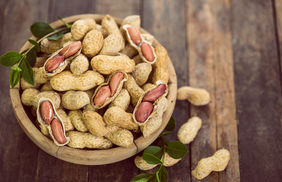Obesity occurs when more calories are consumed by eating and drinking than the body requires. The question is, why do humans not realise in time that in reality they are already full? In this context, food quality plays an important role - especially the protein content. In a study by Sydney University, carried out in 2011, a researcher investigated the influence of the protein content of food on appetite and caloric intake. 22 slim test persons were given food with varying protein content for four days. The test persons who consumed the least protein consumed more calories than the other test persons. A low-protein diet leads to saturation subsiding more quickly and therefore more is eaten. Instead of proteins, it is often foods rich in fat that end up on the plate. Both increase the calorie intake and the risk of becoming overweight.
The protein requirement can be covered by animal and vegetable sources. Proteins of animal origin can be used very effectively by the body, but there are also many saturated fats present in meat, sausages, etc. Peanuts are rich in plant protein - 100 g peanuts provide 25 g proteins. By combining with cereals, for example, in bread or muesli, the usability of the vegetable protein from peanuts even increases and thus has no disadvantage compared to the usability of the animal proteins. Conclusion: a diet containing peanuts helps to ensure consumption of sufficient protein and thus prevent obesity.
Source:
Gosby AK et al.: Testing Protein Leverage in Lean Humans: A Randomised Controlled Experimental Study. PLoS ONE (2011), 6: e25929

